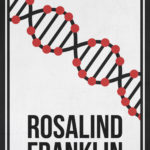No, sexism in science doesn’t mean advisers take their students aside and say “don’t worry, you’ll pass your thesis defense, because I’ve noticed we both have a penis.” It doesn’t mean tenure committee meetings include the action item “DID YOU NOTICE SHE’S A WOMAN? INAPPROPRIATE? DISCUSS.” It doesn’t mean lab doors have signs saying “no open-toed shoes and no chicks.”
Here’s what male scientists and historically male-led departments do instead: Offer little or no maternity leave for graduate students. Evaluate women employees on their personalities rather than their competence. Make jokes that cause women colleagues to feel left out and belittled. Go on national television in a shirt that shows women as decorative, sexualized semi-nudes. Hire people who just seem to fit in with the culture that thinks all of this is okay.
We asked for your nominations for unsung women in science – and you did not disappoint.
More coming soon!
Q: Girls are discouraged? That sounds so 1970s.
A: There was a 2001 study that showed in fourth grade, 68% of boys and 66% of girls like science. Starting in sixth, seventh and eighth grade, we lose girls and boys, but we lose more girls and for different reasons: lingering stereotypes, societal pressures. It’s well known that many girls have a tendency to dumb down when they’re in middle school. Just last week, I was talking to senior executives, and a woman told me that she was the best biology student in high school and had the highest exam scores. At the end of the semester, a teacher told her: “I’m sorry, but I’m going to have to give the award in biology to a boy, because it’s more important to him.” Almost every time that I give a speech or meet with a group of women, I’ll hear such stories.
Q: Boys earn 70% of the D’s and F’s in school and account for 80% of dropouts. Shouldn’t we fear more for their future?
A: It’s a big problem. Women earn the majority of undergraduate degrees in the U.S. and last year earned more Ph.D.s than men. But keeping girls in the science and math pipeline is a separate problem with different causes. It’s important we address both. You don’t stop research on breast cancer just because heart disease is also deadly. You work on both.
Q: Suppose you were an executive of a corporation that needs engineers. You meet a girl in high school. She scored in the 99th percentile in math on her SATs, yet says she wants to major in psychology or go to law school, because those careers sound more interesting. What do you tell her?
A: I’d introduce her to the coolest female engineer in the company. Girls tend to have a stereotype of engineers being 65-year-old guys who wear lab coats and pocket protectors and look like Einstein. Try to make it personal to them and show them some of the cool things that they can do in engineering.
Q: Let’s talk Lawrence Summers. The Harvard president recently resigned after giving a controversial speech a year ago suggesting that men might simply be predisposed to be better at math and science. Is there at least a grain of truth in what he said?
A: (Laughs). Suppose you came across a woman lying on the street with an elephant sitting on her chest. You notice she is short of breath. Shortness of breath can be a symptom of heart problems. In her case, the much more likely cause is the elephant on her chest.
For a long time, society put obstacles in the way of women who wanted to enter the sciences. That is the elephant. Until the playing field has been leveled and lingering stereotypes are gone, you can’t even ask the question.
Q: I will anyway. There are many obvious biological differences between men and women. This can’t be one?
A: There are obvious differences, but until you eliminate the more obvious cause, it’s difficult to get at the question scientifically. Look at law, medicine and business. In 1970 — that’s not ancient history — law school was 5% female, med school was 8% and business school was 4%. You could have taken a look at those numbers and concluded that women don’t make good lawyers or doctors. The statistics might have supported you. But today, all of those fields are about 50-50.
Why Are There Still So Few Women in Science? – NYTimes.com
Why Are There Still So Few Women in Science? – NYTimes.com
Hint: The answer has more to do with “The Big Bang Theory” than longstanding theories about men’s so-called natural aptitude.












